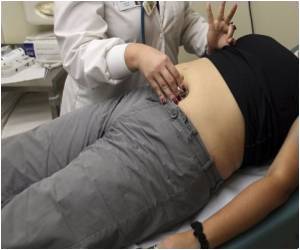Inducing labor for women after 37 weeks of pregnancy can help reduce the perinatal mortality without increasing caesarean section rates.

Induction of labor is frequently performed for pregnancies of more than 41 weeks gestation to reduce perinatal mortality. Induction at term (beyond 37 weeks) can also reduce complications, particularly when a mother has existing health problems like high blood pressure.
Yet there has been no large study examining the risks and benefits of induction at term on newborn deaths.
This information is needed to help guide decisions about pregnancy management. So a team of researchers in Scotland compared rates of perinatal mortality and maternal complications after elective induction (induction of labor with no recognized medical indication) and expectant management (continuation of pregnancy to either spontaneous labor or induction or caesarean section at a later date).
Using Scottish birth and death records, they analyzed data for over 1.2 million women with single pregnancies who gave birth after 37 weeks gestation between 1981 and 2007. Outcomes were adjusted for factors such as age at delivery, whether the mother had given birth before, birth weight and deprivation.
At each gestation between 37 and 41 weeks, elective induction of labor was associated with lower death rates compared with expectant management, without increasing the need for a caesarean section. For example, at 40 weeks gestation, deaths occurred in 37 out of 44,764 (0.08%) in the induction group compared with 627 out of 350,643 (0.18%) in the expectant management group.
Advertisement
This means that for every 1,040 women having elective induction of labor at 40 weeks, one newborn death may be prevented, but this would result in seven more admissions to a special care baby unit, explain the authors.
Advertisement
Source-BMJ











